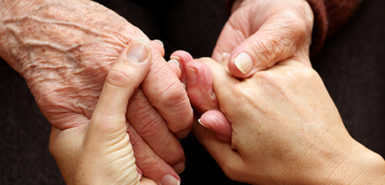
Researchers looking to trace the genetics and risk factors for Alzheimer’s disease put out a call: Volunteers needed to take a short online memory test.
Celebrities such as Ashton Kutcher, Lynda Carter and Valerie Bertinelli spread the word on social media. Soon, thousands of people signed up to match word pairs on the MindCrowd test.
With more than 59,000 tests completed, the researchers at the Translational Genomics Research Institute in Arizona analyzed the results.
On average, adults 18 to 65 who had a family member with Alzheimer’s scored lower than those who did not.
The study suggests those who have a higher risk of developing Alzheimer’s because of family history may show changes in memory performance as early as their 20s, say the researchers.
More than 115,000 people have now taken the test, which is still online.
Researchers aim for a pool of 1 million participants, creating a set of data about how people without Alzheimer’s perform on the test, based on age, gender and various demographic and health factors.
Take results in context
The study, published in the journal eLife, may spark intriguing questions about who is at risk for the memory-impairing disease—but it is far from a diagnostic test, cautions Timothy Thoits, MD, the division chief of neurology with Spectrum Health Medical Group.
Thoits, a specialist in memory disorders, said neuropsychologists administer a number of tests to diagnose Alzheimer’s.
One test resembles the one used in the MindCrowd research. It asks participants to learn word pairs and then tests how well they can recall the missing half of each pair when one word is presented.
For example, a word pair may be “fan and vase.” When prompted with the word “fan,” the participant fills in the missing word, “vase.” (These words are not from the actual test.)
But someone undergoing testing for dementia would undergo many other tests—covering abilities such as attention, visual and spatial perception, judgment, processing, recall and retention.
Neuropsychologists’ testing also measures whether the patients are giving a good effort. This is crucial because depression, anxiety and other factors can affect whether people give it a full effort.
“Memory loss has to be taken in context—what’s going on in your life, what medications you are exposed to, any other medical illnesses,” Dr. Thoits said.
He encouraged anyone concerned with their results on the test—or memory issues in general—to talk first with a primary care doctor.
The researchers, in discussing the results of the study, stressed the value of a healthy lifestyle in helping to reduce the risk of dementia.
Neuropsychologists generally divide recommendations into three age groups, Dr. Thoits said.
Early life
Stay in school.
“People with a high education build up what we call cognitive reserve,” he said. “We think they can get along longer even though they may be having trouble, because of that high intelligence.
“For somebody with a lower cognitive reserve, minor deficits come to the forefront sooner.”
Midlife
Address health risk factors linked to an increased risk of dementia, including high blood pressure, obesity, diabetes, smoking and hearing loss.
Although hearing loss gets little attention as a risk factor, research shows the link to be significant.
A recent study of more than 16,000 people in Taiwan found those diagnosed with hearing loss between 45 and 64 years of age were at higher risk of developing dementia in coming years. The findings suggest that hearing protection, screening and treatment might reduce that risk factor, the researchers say in the study published in JAMA Network Open.
Later life
Physical inactivity, social isolation, hypertension and depression all raise the risks of dementia for older adults.
Dr. Thoits encourages people to socialize and remain physically and mentally active. Suggestions include:
Take a lifelong learning course at a local college.
Do crossword puzzles and other fun games, including those offered free online at Games for the Brain.
Each day, get 30 minutes of aerobic exercise a day—make it a heart rate-boosting, sweat-inducing session.
Lifelong
In general, Dr. Thoits advises paying attention to four areas of life: Stay active physically, mentally and socially and follow a Mediterranean diet, with its emphasis on fruits and vegetables, fish, legumes, poultry and whole grains.
He does not advise taking supplements that claim to prevent dementia.
“One multivitamin a day is all we recommend,” he said.

 /a>
/a>
 /a>
/a>
 /a>
/a>